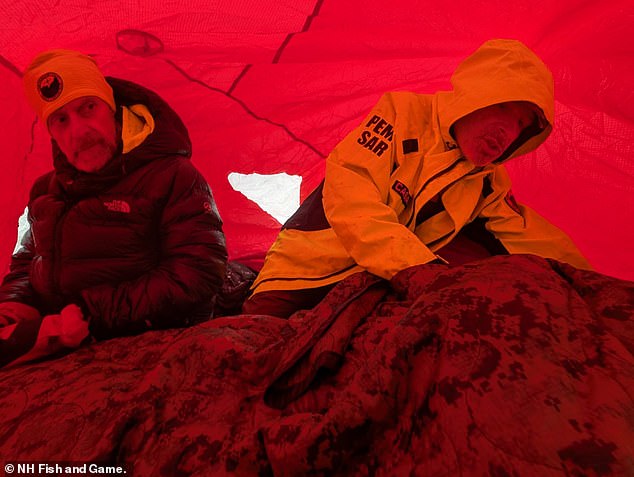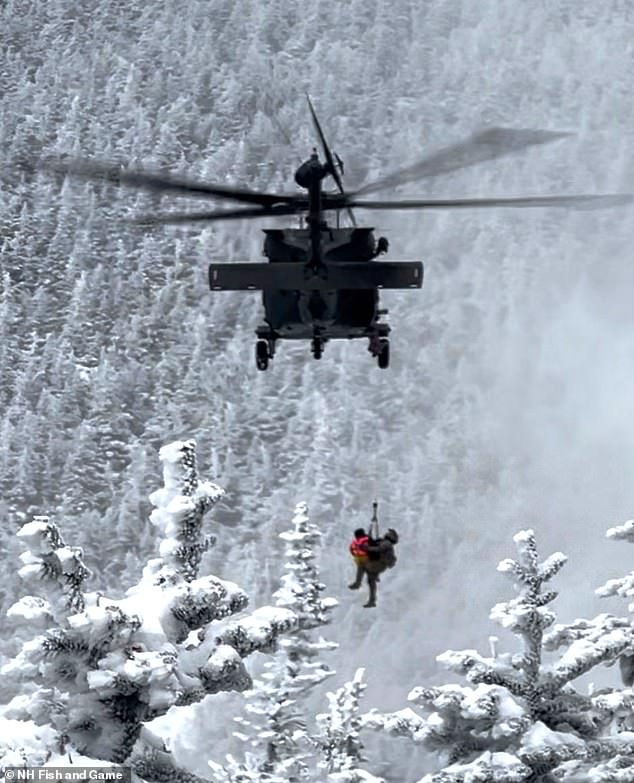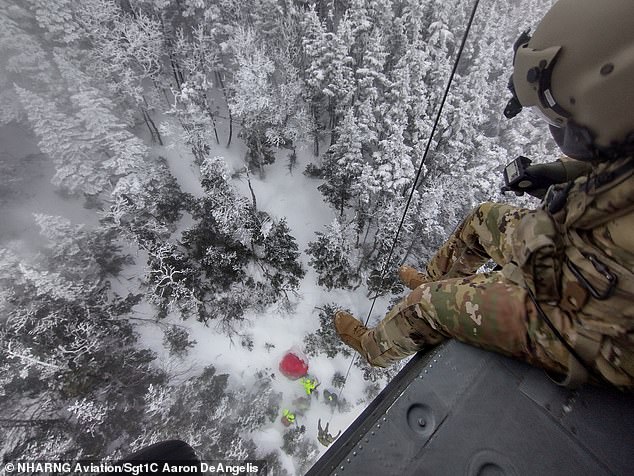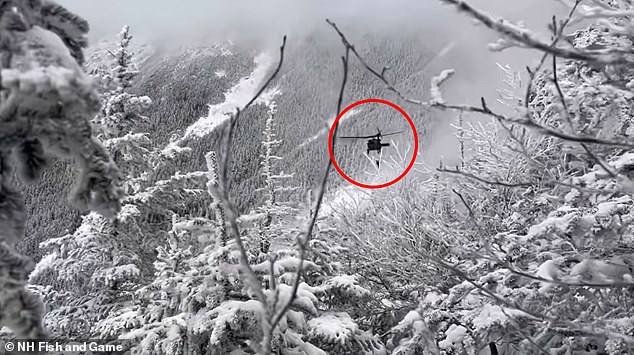Hiker’s solo adventure turns into battle for survival as he’s rescued from Mount Lafayette ridge
A hiker had to be rescued from the top of a New Hampshire mountain by a rescue helicopter after being caught in horrific winter weather that left him with “severe hypothermia.”
Patrick Bittman, 28, of Portland, Maine, had hoped to witness an unforgettable sunrise from the 6,000-foot summit of Mount Lafayette.
Setting out Wednesday evening and hiking alone, he was confronted by a wall of wind and snow as he approached the summit of Little Haystack on Franconia Ridge at 4,500 feet.
The deep, blowing snowstorms forced him to abandon his attempt and turn back.
Yet the descent turned out to be much more treacherous than he as B. could have imaginedIttman’s solo adventure turned into a battle for survival that tested the limits of his endurance and the resilience of rescue teams.
Blinded by the storm and disoriented by the biting cold, Bittman veered off course and plunged into the remote Dry Brook drainage.
The temperature dropped to 20 degrees Fahrenheit, while the wind chill was almost zero.
His clothes and hiking gear were no match for the unforgiving elements.
Patrick Bittman, 28, of Portland, Maine, had to be rescued from the top of a mountain in New Hampshire. Pictured, Sergeant. 1st Class Ethan Major, a flight medic with the New Army National Guard, puts an air life jacket on Bittman during a rescue on Little Haystack Mountain in Franconia Range

Rescuers on the ground provide aid to stricken hiker Patrick Bittman in a lightweight emergency shelter, known as a Bothy Bag, during a search and rescue operation on Franconia Ridge

Sergeant 1st Class Ethan Major, a flight medic with the New Hampshire Army National Guard, and stricken hiker Patrick Bittman are lifted into a Black Hawk helicopter during a successful search and rescue mission on Franconia Ridge, New Hampshire
As the hours passed and night fell, Bittman was slowly consumed by the cold.
By the time dawn broke Thursday morning, Bittman was freezing, desperate and unable to move his limbs.
Mustering all his strength, he managed to call 911 for help, now that he was buried several feet deep in snow.
The call sparked a massive rescue effort that would span hours of grueling terrain and unforgiving weather.
Ground teams from the New Hampshire Fish and Game Department and the Pemi Valley Search and Rescue Team were mobilized, joined by an air crew from the Army National Guard.
But the mountain, shrouded in dense cloud and lashed by periodic snow showers, made their efforts particularly difficult.
It meant the helicopter could only get within a quarter mile of the hiker before they had to turn back due to poor visibility. The helicopter was able to land at nearby Cannon Mountain Ski Area while waiting for a safer option.
Visibility was almost zero and the rugged, snow-covered landscape offered no easy passage.

A stunning view from just 75 feet sees Sgt. Daniel Bourque, a medevac crew member with the New Hampshire Army National Guard, demotes Sgt. 1st Class Ethan Major to save Patrick Bittman

After two tense hours, a break in the weather allowed the Army National Guard helicopter to approach and airlift Bittman to the hospital.
On the ground, rescuers battled through dense vegetation and made their way through 1,000 feet of snow-soaked wilderness to reach Bittman.
Early Thursday afternoon they found him – barely conscious, suffering from severe hypothermia and unable to move.
Rescuers wrapped him in an emergency sleeping bag, dressed him in warm, dry clothes and carefully administered hot fluids to stabilize him.
After two tense hours, a break in the weather allowed the Army National Guard helicopter to approach.
A medic was lowered into the icy abyss and assessed Bittman’s condition before hoisting him onto the plane.
The dramatic aerial rescue was caught on camera and saw the man lifted from the bush to be flown to a nearby hospital for treatment.
Officials praised the extraordinary teamwork that brought Bittman back from the brink.
“This air rescue saved a multi-hour rescue through rugged terrain and is a testament to how search and rescue works in New Hampshire,” said representatives from the New Hampshire Fish and Game Department.
“Multiple groups came together with a common purpose, and today that purpose saved a life.
‘Winter conditions have arrived in the White Mountains, and hikers are encouraged to be prepared for their hike, including packing the ten essential items: map, compass, warm clothing, extra food and water, headlamp, fire starter, first aid kit , whistle, rain/wind jackets and pants, and a knife,” the New Hampshire Fish and Game said in a statement while urging other hikers to be careful.
